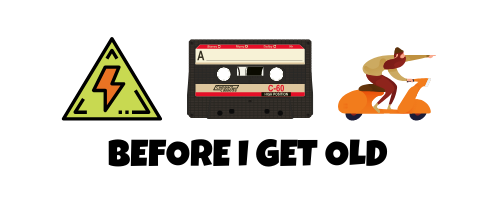Know your sh*t or know you’re sh*t Mr Cummings
In among the oceans of experts pronouncing on the Dominic Cummings crisis this weekend, the most interesting thing for me is how no one is talking about the fact Mr C should be resigning, not because he behaved like an entitled ‘Cunty Durham’ (which must surely now be known as Geordie rhyming slang) but more because he’s actually doing such a terrible job.
It’s obvious to even the most casual follower of ‘Dom-as-I-say-not-as-I-do’ that he has a superb talent for co-ordinating campaigns that win the unwinnable. His performance in the Brexit vote and 2019 general election was little-short-of-genius. But creating and running actual policy is very different from running a campaign and, in this, he has shown little sign of anything approaching competence, let-alone expertise.
Witness the embarrassment of the Parliament prorogation debacle last year. And now the Covid-19 pandemic, where every single one of the major decisions from flirting with the herd immunity, bungling the timing of the lockdown, mis-managing PPE to not protecting care homes, dropping the initial track-and-trace programme in early March, failing to test properly till early May and then changing the messaging from a simple ‘ahem’ ‘STAY HOME’ to the less clear ‘stay alert’. Bad decision after bad decision.
A colleague of mine sends an email when I mess up at work. ‘Know your shit or know you’re shit’. He’s right and what interests me most is that the same phrase applies to much of what we do in life.
One of the things I love most about now being on the fifth floor (how a mate described reaching our 50th birthdays) is an easy acceptance that, while I am good at some things, there are many others that I am not so good at.
When I was younger it was harder to admit to this; partly because the list of things in the ‘good at’ box was a lot smaller and partly because when you are making your way up in life it feels more important to present a positive spin. The lightbulb moment for me came during (of all things) an otherwise mediocre management training course in 2017. Midway through the morning session it dawned on me that there were a whole load of management-type things that I was terrible at, had always been terrible at and will in-all-probability remain terrible at. The company I work for pay me a decent wage and were very excited to employ me because I have lots of other skills that they value. I don’t recall during the recruitment process my current boss saying ‘We hear you are hopeless at organisation, find it hard to finish tasks effectively and get distracted easily – you sound like just the bloke for us.’ Instead they took me on for my ability to build and inspire an independent, hard-working, happy and very productive, successful team’ which I have a long track record of doing in other companies. When my boss asked about my ambition I explained that I like to be the bloke of whom everyone asks ‘what exactly does he do?’ as his team breaks all performance records.
So the first thing I did when I returned from the course was explain to my team that I would no longer do the things I did so badly because there was no point when they could clearly do those things much better than me.
You might expect kickback from this; why should they do my job? In fact, it was the opposite. Their previous frustration at watching me fail while they could have done better lifted and, our team functions much the better for it.
Sometimes we all need the opportunity to stand back and work out what the actual (not necessarily the obvious) right thing to do is.
For example, going back to the Cummings crisis. The smart thing for the Government to have done when the news broke would have been to announce his resignation immediately. Cummings’ performance in running the strategy for the pandemic has been so woeful that they can manage without him. By resigning he is seen to have done the right thing, the Government, it’s leader and ministers retain their credibility and authority and Dom would be free to work in the background on the things that he is good at – planning the campaign to sell the difficult messages emerging from the ongoing Brexit program, which might not be centre stage right now but will become the number-one story as soon as life returns to normal.
Taking him out of the Covid crisis and allowing him and his team to focus on Brexit away from the spotlight would have actually been a stroke of genius and established Boris as a man prepared to take the difficult decisions.
Instead, they allowed vanity to create the very worst of all worlds because no one is prepared to admit they might not be brilliant at everything.
Maybe they need to go on a management training course too.









